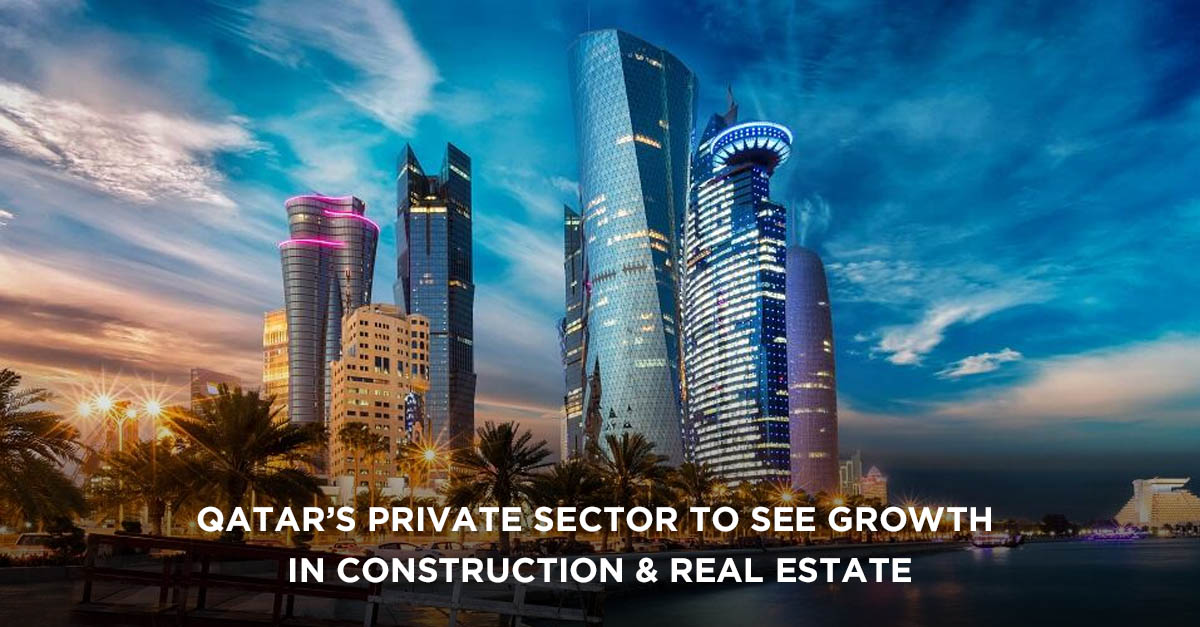Qatar’s private sector to see growth in Construction & Real Estate
With business relations set to recommence with KSA and UAE, Qatar’s economy will see a boost in all sectors. While the economic growth has remained steady despite the 2017 blockade, opening borders, and resuming trade relations will have a positive impact on all Gulf nations.
Throughout the restrictions, public construction activity in Qatar remained resilient, largely due to government spending on projects. But the residential real estate market saw a sharp downturn, exacerbated by the pandemic.
Stalled Recovery amid Covid-19
While the impact of the coronavirus, was felt across Qatar, it appeared to have weathered the storm better than many other countries. Due to its early enforcement of social distancing, and its relatively younger population, the healthcare system was thankfully not overwhelmed by the events in 2020.
Unfortunately, the pandemic hit Qatar’s economy just as its real-estate sector was stabilizing after a 3-year downturn. A report released by KPMG(1), on the effects of COVID-19 on Qatar’s economy, showed that by the end of the year 2019, the total residential stock was 331,000 with the anticipation of a further 18,000 units being added to this total by the end of 2020. But the disruption caused by the pandemic has led to delays in the short to medium term that, combined with weakened demand due to COVID-19 restrictions, again put the revival of the sector in jeopardy.
Lifting of the Blockade
The timely resumption of ties, with both KSA and UAE, will certainly prompt an influx of investment and investors – in the larger Qatar economy as well as in the nation’s real estate markets. With trade returning to normal, and reopening of access to airspace for its national airline, the Qatar economy will significantly expand on its value proposition. Like a domino effect, this will lead to a positive upturn in the demand for residential housing over the short to middle term as well, providing a much-needed boost to the sector.
Moreover, Qatar’s ‘Residency by Investment Program’, will see the demand for the residential sector shift from rental to outright ownership of properties, among the nation’s expatriate community. Given the approaching FIFA World Cup, as well as the Qatari government’s investment in the education sector, with the aim to become a hub for world-class universities, Qatar’s construction and real estate are certainly poised for a strong rebound.
Moving beyond informed speculation, the numbers also align with an optimistic outlook about the recovery of the Qatari construction and real estate sectors. Building permits are considered the key indicators of the performance of the construction sector. As per The Planning and Statistics Authority (PSA), permits issued in December 2020, witnessed an increase of 28% compared to permits issued in the months prior(2), pointing to the growth that can be expected in the near future.
Better Prospects for Private Sector Construction and Real-Estate
As Qatar’s government strengthens its fundamentals through fiscal reforms, the nation’s economy is poised for an expansion and a new wave of business opportunities. Rising confidence among investors will also play a key role in enabling a buoyant construction and real-estate sector. With the geopolitical tensions with its neighbours and natural economic partners resolved successfully, the Qatari real-estate and construction sector is set to be infused by dynamism and growth.




